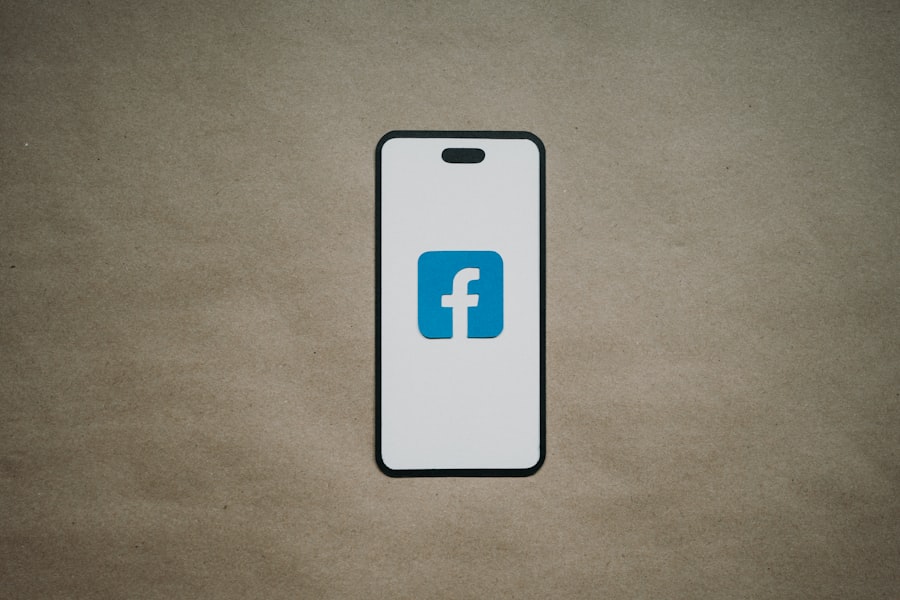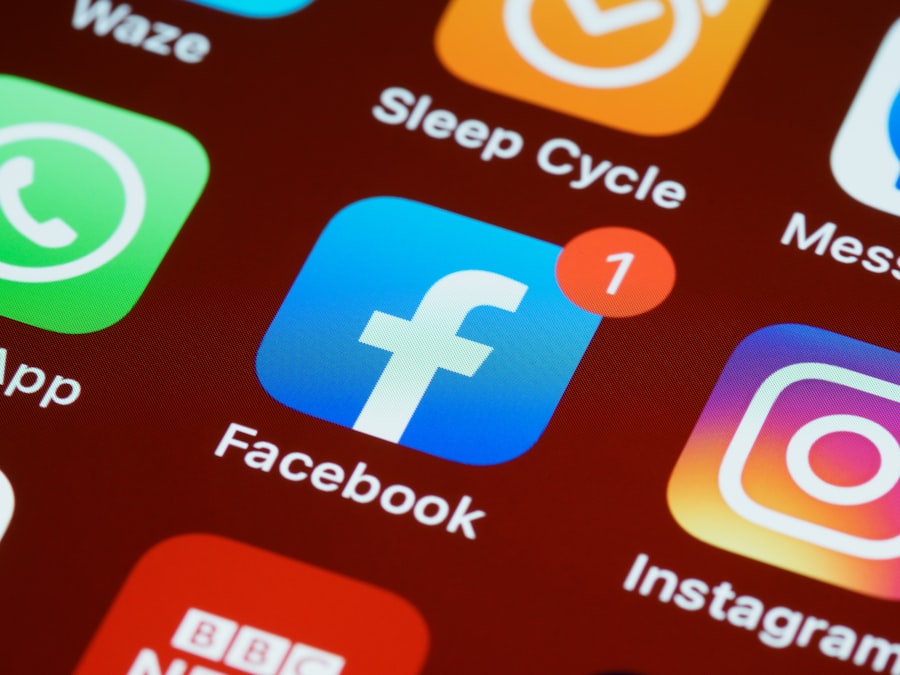In today’s digital age, social media has become an integral part of your daily life. You likely find yourself scrolling through feeds, liking posts, and sharing moments with friends and family. This phenomenon has transformed the way you communicate, connect, and even perceive the world around you.
However, as you engage with these platforms, it’s essential to consider how they impact your brain and overall mental health. The relationship between social media and the brain is complex, intertwining elements of psychology, neuroscience, and social behavior. As you navigate through various social media platforms, your brain is constantly processing information, forming connections, and responding to stimuli.
This interaction can lead to both positive and negative outcomes. Understanding how social media affects your brain can empower you to make informed choices about your online presence and its implications for your mental well-being. In this article, we will explore the multifaceted effects of social media on the brain, delving into aspects such as dopamine release, self-esteem, attention span, and mental health.
Key Takeaways
- Social media can have a significant impact on the brain’s reward system, leading to increased dopamine release and addictive behaviors.
- Social comparison on social media can affect self-esteem and mental well-being, leading to negative psychological outcomes.
- Excessive social media use can negatively impact attention span, cognitive function, and memory retention and recall.
- The link between social media use and mental health issues, such as anxiety, depression, and loneliness, is well-documented.
- Adolescents are particularly vulnerable to the long-term effects of social media on brain development, making it crucial to implement strategies to mitigate the negative impact.
The Dopamine Effect: How Social Media Affects the Brain’s Reward System
When you receive a notification on your phone or see a new like on your post, your brain releases dopamine, a neurotransmitter associated with pleasure and reward. This chemical response creates a sense of satisfaction that encourages you to engage more with social media. Each time you check your notifications or scroll through your feed, you are essentially training your brain to seek out these rewarding experiences.
This cycle can lead to habitual checking of social media, as you chase that fleeting feeling of gratification. The dopamine effect can be likened to the way your brain responds to other pleasurable activities, such as eating your favorite food or engaging in physical exercise. However, the difference lies in the accessibility and immediacy of social media rewards.
Unlike traditional rewards that may require effort or time, social media provides instant gratification at your fingertips. This ease of access can lead to compulsive behaviors, where you find yourself mindlessly scrolling for hours, seeking that next hit of dopamine without realizing the time that has passed.
The Role of Social Comparison and Self-Esteem in Social Media Use

As you engage with social media, you are often exposed to curated images and narratives that portray an idealized version of life. This constant comparison can significantly impact your self-esteem and self-worth. You may find yourself measuring your achievements against those of others, leading to feelings of inadequacy or envy.
The pressure to present a perfect image online can create a cycle of self-doubt and anxiety, as you strive to meet unrealistic standards set by influencers and peers alike. Moreover, the feedback you receive on social media—likes, comments, and shares—can further influence your self-perception. Positive reinforcement may boost your confidence temporarily, but negative feedback can have the opposite effect, leading to a decline in self-esteem.
This dynamic creates a precarious balance where your sense of worth becomes tied to external validation rather than intrinsic qualities. Recognizing this pattern is crucial for maintaining a healthy relationship with social media and fostering a more positive self-image.
The Impact of Social Media on Attention Span and Cognitive Function
| Metrics | Findings |
|---|---|
| Attention Span | Decreased due to frequent social media use |
| Cognitive Function | Impacted by excessive social media consumption |
| Memory Retention | Reduced with prolonged social media exposure |
| Information Processing | Slowed down by distractions from social media notifications |
In an era where information is abundant and attention spans are dwindling, social media plays a significant role in shaping how you process information. The fast-paced nature of scrolling through feeds can lead to fragmented attention, making it challenging for you to focus on one task for an extended period. As you jump from one post to another, your brain becomes accustomed to rapid shifts in attention, which can hinder your ability to concentrate on more demanding cognitive tasks.
Research suggests that excessive social media use may contribute to cognitive overload, where the sheer volume of information overwhelms your processing capabilities. This overload can result in decreased productivity and difficulty retaining information. You may find it harder to engage in deep thinking or critical analysis when your brain is constantly bombarded with snippets of information from various sources.
Cultivating mindfulness and intentionality in your social media use can help mitigate these effects and enhance your cognitive function.
The Link Between Social Media Use and Mental Health Issues
The relationship between social media use and mental health is a growing area of concern for researchers and mental health professionals alike. Studies have shown that excessive engagement with social media can be linked to increased feelings of anxiety, depression, and loneliness. As you scroll through carefully curated posts showcasing the highlights of others’ lives, it’s easy to feel isolated or disconnected from reality.
Moreover, the pressure to maintain an online persona can exacerbate existing mental health issues or contribute to new ones. You may feel compelled to present a version of yourself that aligns with societal expectations or trends, leading to a dissonance between your online identity and true self. This disconnect can create feelings of inadequacy and exacerbate symptoms of anxiety or depression.
Understanding this link is vital for recognizing when social media use may be negatively impacting your mental health.
Social Media and Memory: How it Affects Information Retention and Recall

Your memory is intricately tied to how you consume information on social media. The way you interact with content—liking posts, sharing articles, or commenting—can influence how well you retain that information. Research indicates that passive consumption of content (scrolling without engaging) may lead to poorer memory retention compared to active engagement (commenting or discussing).
When you actively participate in discussions or share insights, you reinforce the information in your memory. However, the rapid-fire nature of social media can also lead to superficial processing of information. You may find yourself skimming through posts without fully absorbing the content.
This shallow engagement can hinder your ability to recall important details later on. Additionally, the overwhelming amount of information available on social media can create cognitive overload, making it difficult for you to distinguish between relevant and irrelevant content. Developing strategies for mindful consumption can enhance your memory retention and improve your overall learning experience.
The Influence of Social Media on Emotional Regulation and Well-Being
Social media serves as both a platform for connection and a potential source of emotional turmoil. As you navigate through various interactions online, you may encounter a range of emotions—from joy and excitement when receiving positive feedback to frustration or sadness when faced with negativity or conflict. Your ability to regulate these emotions can be significantly influenced by your social media experiences.
Engaging with supportive communities online can foster a sense of belonging and enhance your emotional well-being. Conversely, exposure to toxic environments or negative interactions can lead to heightened stress levels and emotional dysregulation. It’s essential to cultivate awareness of how social media affects your emotional state and take proactive steps to curate your online experience.
Surrounding yourself with positive influences and limiting exposure to negativity can help promote emotional resilience.
Social Media Addiction: Understanding the Brain’s Response to Excessive Use
Social media addiction is a growing concern in our hyper-connected world. As you find yourself drawn into the endless scroll of feeds and notifications, it’s crucial to recognize the signs of addiction and its impact on your brain’s reward system. Similar to substance addiction, excessive use of social media can lead to changes in brain chemistry that reinforce compulsive behaviors.
When you engage with social media excessively, your brain becomes conditioned to seek out those dopamine hits associated with likes and shares. Over time, this conditioning can lead to tolerance—where you require more significant engagement or stimulation to achieve the same level of satisfaction.
The Long-Term Effects of Social Media on Brain Development in Adolescents
The impact of social media on brain development is particularly pronounced during adolescence—a critical period for cognitive growth and emotional maturation. As young individuals like yourself navigate identity formation and peer relationships online, the influence of social media can shape their developing brains in profound ways. Research indicates that excessive use during this formative stage may lead to alterations in neural pathways associated with reward processing, decision-making, and emotional regulation.
Adolescents who engage heavily with social media may experience heightened vulnerability to mental health issues due to increased exposure to cyberbullying, unrealistic comparisons, and social pressures. These experiences can hinder healthy emotional development and contribute to long-term challenges in self-esteem and interpersonal relationships. Understanding these potential consequences is vital for fostering healthy habits around social media use among young individuals.
Strategies for Mitigating the Negative Impact of Social Media on the Brain
To navigate the complex relationship between social media and the brain effectively, it’s essential to implement strategies that promote healthy usage patterns. One approach is setting boundaries around screen time—designating specific periods for social media engagement while prioritizing offline activities that foster real-world connections. Engaging in hobbies, physical exercise, or mindfulness practices can help create a balanced lifestyle that reduces reliance on digital interactions.
Additionally, curating your online environment is crucial for maintaining a positive experience on social media. Unfollowing accounts that evoke negative feelings or contribute to unhealthy comparisons can create a more uplifting feed that supports your well-being. Engaging mindfully with content—taking time to reflect on what resonates with you—can also enhance your overall experience while reducing cognitive overload.
Navigating the Complex Relationship Between Social Media and the Brain
As you continue to engage with social media in various aspects of your life, it’s essential to remain aware of its multifaceted effects on your brain and mental health. While these platforms offer opportunities for connection and self-expression, they also present challenges that require careful navigation. By understanding how social media influences dopamine release, self-esteem, attention span, memory retention, emotional regulation, and overall well-being, you can make informed choices about your online presence.
Ultimately, fostering a healthy relationship with social media involves cultivating mindfulness around its use while prioritizing real-world connections and experiences. By implementing strategies that promote balance and well-being, you can harness the positive aspects of social media while mitigating its potential negative impacts on your brain and mental health. In this ever-evolving digital landscape, being proactive about your engagement will empower you to navigate the complexities of social media with greater awareness and intention.
In recent years, the long-term effects of social media on the brain have become a topic of significant interest among researchers and mental health professionals. Social media platforms, while offering numerous benefits such as connectivity and information sharing, have also been linked to various cognitive and emotional challenges. For a deeper understanding of these impacts, you might find the article on unpluggedpsych.
com/’>Unplugged Psych insightful. This resource delves into the psychological implications of prolonged social media use, exploring how it can affect attention spans, emotional regulation, and overall mental well-being.
LEARN WHY Your Brain Isn’t Addicted to Likes; the Algorithm Gaslights You Daily, Hard.
FAQs
What are the long term effects of social media on the brain?
Social media can have various long term effects on the brain, including changes in attention span, increased anxiety and depression, and potential addiction to social media platforms.
How does social media affect attention span?
Excessive use of social media has been linked to shorter attention spans, as the constant scrolling and exposure to short, attention-grabbing content can make it difficult for individuals to focus on longer tasks.
What is the impact of social media on mental health?
Research suggests that heavy use of social media can contribute to increased feelings of anxiety, depression, and loneliness, particularly among young people. Comparing one’s own life to the curated and often idealized versions presented on social media can also negatively impact self-esteem.
Can social media usage lead to addiction?
Some individuals may develop an addiction to social media, experiencing a compulsive need to check and engage with social media platforms. This can have negative effects on their daily lives and overall well-being.
How does social media affect sleep patterns?
The use of social media, particularly before bedtime, can disrupt sleep patterns. The blue light emitted by screens can interfere with the body’s natural sleep-wake cycle, leading to difficulties falling asleep and obtaining restful sleep.
What are some strategies for mitigating the negative effects of social media on the brain?
Limiting screen time, taking regular breaks from social media, and engaging in offline activities such as exercise, hobbies, and socializing in person can help mitigate the negative effects of social media on the brain. Seeking professional help is also recommended for individuals struggling with addiction or mental health issues related to social media usage.




